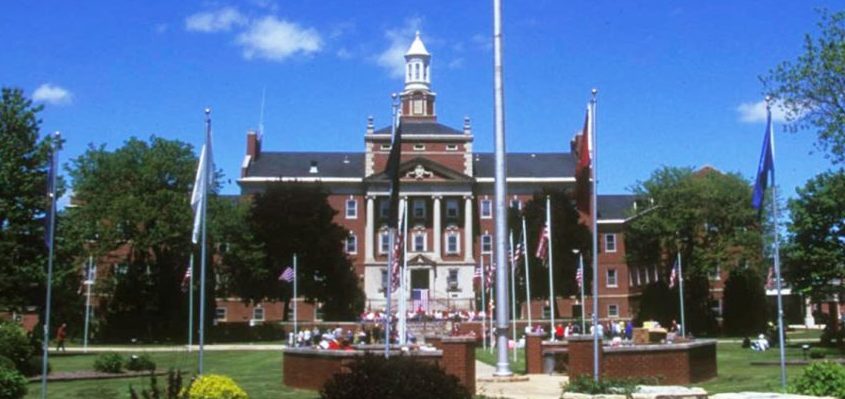
April 10, 2018
By Shannon Hough
Special Guest Perspective for the MacIver Institute
Tomah is a little bit more than 930 miles from Washington, D.C. But when I was the city’s mayor, there were times when it felt like the two cities were a world apart.
This was certainly the case when some in our nation’s capital looked the other way as a devastating opioid epidemic gripped our local community. Eventually, an Inspector General report would confirm what I had hoped was not true: The epicenter of the crisis was our Tomah Veterans Administration Medical Center, a pillar of our tight-knit community.
The details were heart-wrenching. Of more than 3,000 practitioners in the multistate region, the three highest prescribers of opiates were at the Tomah VA. They handed out so many narcotics that the hospital had earned the nickname “Candy Land.”
In the past few years, several Tomah VA pharmacists have quit or were fired for expressing their concerns over the prolific prescriptions. And, in other reports, hospital workers said patients often showed up for appointments “doped up” and “zombified.”
The consequences were tragic. In 2014, Jason Simcakoski, a 35-year-old Marine Corps veteran and a patient in the Tomah VA psychiatric ward died as a result of “mixed drug toxicity.” He was on 15 different drugs, including an opioid painkiller, tranquilizer, and anti-depressants.
I was not shocked by the IG report’s finding; I was angered. My city had been seeing a large influx of opioid and my first responders were receiving high volumes of calls from citizens seeking assistance for their loved ones following an opioid overdose. We saw numerous cases of men and women, in the prime of their lives, looking for any way possible to sustain their addictions.
On one occasion, I saw a veteran bringing in numerous 5-gallon buckets of prescription medication.
Our local police station created a drug turn-in program for both prescription and illegal drugs. It was not uncommon for veterans’ families to bring in a large quantity of leftover drugs when they were no longer needed. On one occasion, I saw a veteran bringing in numerous 5-gallon buckets of prescription medication.
I was appalled that medical professionals at our local VA were enabling—perhaps even causing—this epidemic in my city. Yet, there was only so much this small-city mayor could do. So I, along with other local elected officials and concerned citizens, alerted our U.S. senators and representatives in Washington. Sadly, our calls went unanswered. The silence was deafening.
Eventually, I learned that some knew about this, including Sen. Tammy Baldwin who had received the IG report detailing the gross abuse and negligence taking place at the Tomah, VA, but failed to act for months.
My faith in our government’s ability to care for our veterans was shaken to its core.
Now, a few years removed from this tragedy, there is reason to think that we have turned a corner. President Donald Trump recently declared the opioid epidemic a public health emergency, and Congress made it easier for the Department of Veterans Affairs (VA) to fire ineffective personnel and protect whistleblowers. Yet, considerable work remains to ensure veterans are receiving the best possible care at their local VA.
Eventually, I learned that some knew about this, including Sen. Tammy Baldwin who had received the IG report detailing the gross abuse and negligence taking place at the Tomah, VA, but failed to act for months.
And when that local VA is failing to provide our brave men and women in uniform with the proper care, it must be easier for veterans to go elsewhere – including going outside of the VA system – to receive the care they need.
This type of choice could have spared those veterans in our community whose only option at the time was the Tomah VA medical center.
That’s why, after leaving public office, I joined Concerned Veterans for America, a group dedicated to improving our VA system. CVA believes that every veteran should receive the best possible care and fights to make our VA system more accountable to the people they serve.
That mission gives me hope, because this fight is personal. I am a proud veteran of the U.S. Navy, a military spouse, and the mother of active duty service members. My family is compelled to serve by our love of country and our commitment to our fellow service members. As a veteran of the Navy, wife of a Soldier and mom to active duty service members; the fight is personal. The mission of CVA gives me hope. My family is compelled to serve our country and our commitment to our fellow service members is strong.
As a civilian, I am determined to tell my story to anyone who is willing to listen, to make sure that the horrors that unfolded at the Tomah VA Medical Center never happen again. It’s a message I hope our elected officials in Washington take to heart.
Shannon Hough is special projects manager at Concerned Veterans for America.